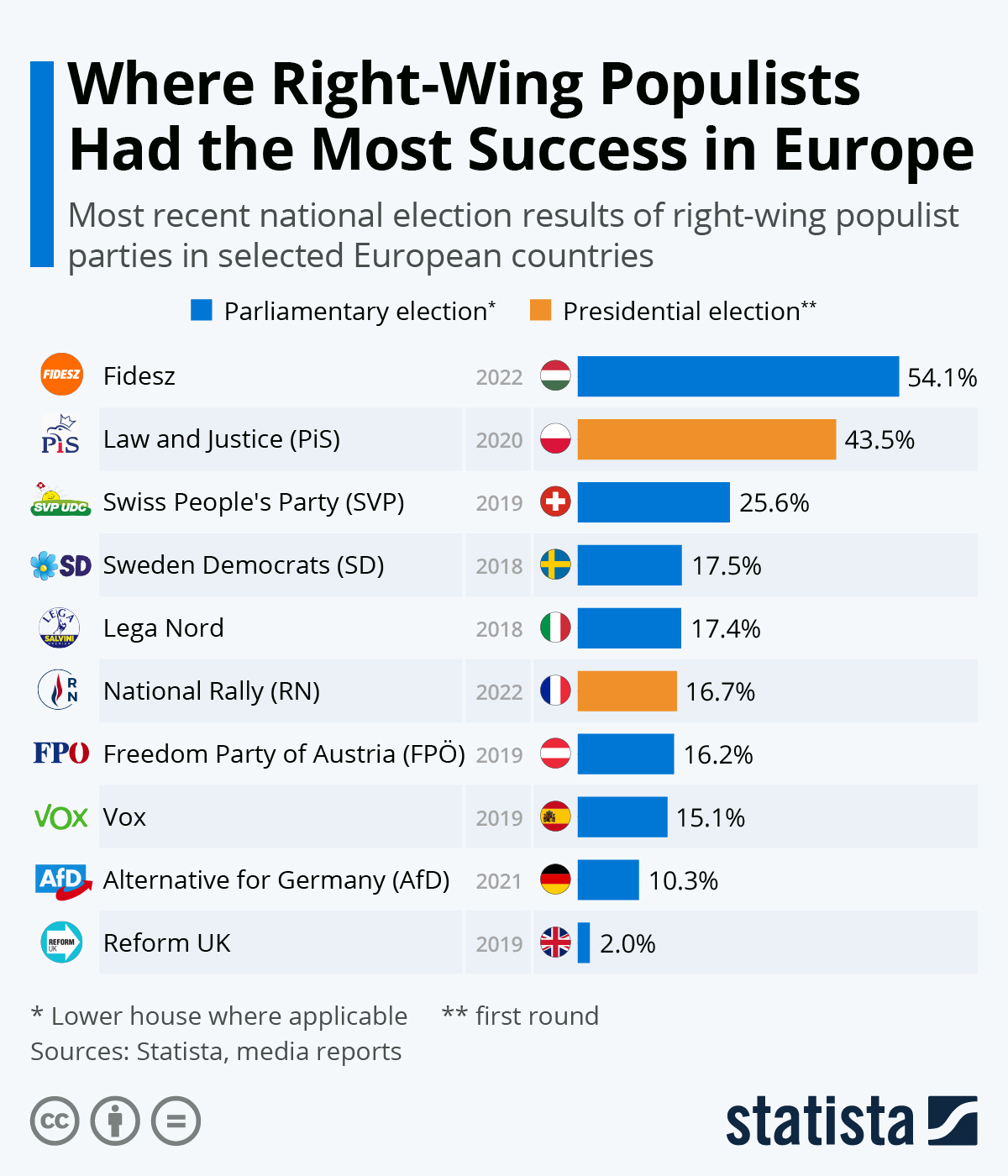Marine Le Pen from the populist National Rally party is facing off in the final leg of the French presidential elections against incumbent Emmanuel Macron on Sunday. In the first round of the presidential run, Le Pen could win 16.7 percent of the vote, second only to Macron's 20.1 percent, qualifying her for the second round of elections.
As our infographic shows, this type of incident is not unusual in European countries. Right-wing populist parties have garnered even more success on the national level in several countries recently. Out of the ten selected in this chart, support for populists was strongest in Poland and Hungary, where Fidesz and Law and Justice (PiS) are the governing parties. Other than in some Western European countries, the two parties as well as the French National Rally are actually older than the recent wave of populist sentiment on the continent. While many right-wing populist parties were more recently founded in an attempt to challenge the status quo in politics, Fidesz and PiS "rebranded" into a more populist agenda, often creating discussions whether they can be called true populists since they predate the most recent resurgence of that movement in Europe.
The same is true for the Swiss People’s Party of 1971, which received more than 25 percent of the vote in the latest national election in the country in 2019, making it the largest party. The Freedom Party of Austria (FPÖ), founded in 1956, received 16.2 percent of the vote the same year, but due to a scandal, entered the opposition after having governed in a coalition with the conservative ÖPV since 2017.
Younger populist parties have actually not fared as well on the continent and have had problems winning elections or entering into governing coalitions. Alternative for Germany (AfD) - founded 2013 - only won a little more than 10 percent of the vote in the country's latest election in 2021, while Spain's Vox - also not yet ten years old - could still win 15 percent in 2019. The UK's Brexit Party - now named Reform UK - only won a meager 2 percent in 2019, while infamous UKIP, now descended into obscurity, had attracted about as many voters in 2017.





















